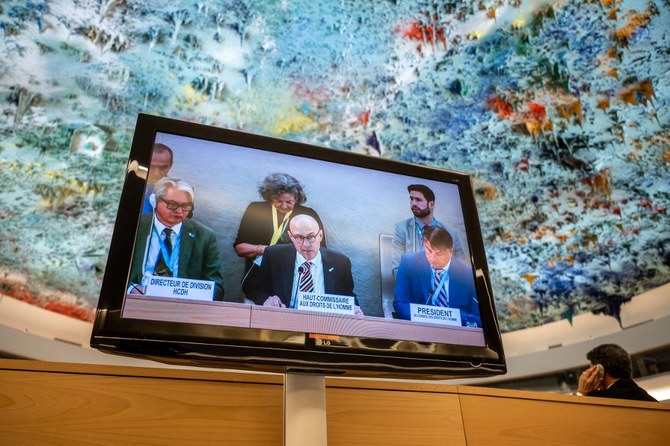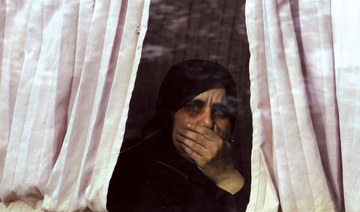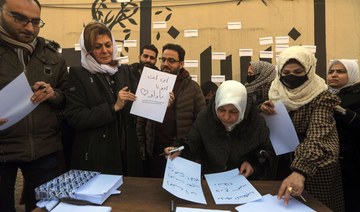NEW YORK: The UN High Commissioner for Human Rights Volker Turk on Tuesday called on the international community to take “decisive steps” to help clarify the fate and whereabouts of missing people in Syria, seek the release of those still detained in the country’s prisons, and provide their families with adequate support.
He urged UN member states to consider establishing a new, dedicated entity that would help bring answers and support to the families of the many thousands of disappeared, and to survivors — “bringing clarity about what has happened to all the people of this wounded and exhausted country.
“We owe the people of Syria no less,” Turk told an informal meeting of the General Assembly to hear a briefing by UN Secretary-General Antonio Guterres on missing people in Syria, adding that the pursuit of justice for missing persons is a prerequisite for lasting peace and reconciliation in the country.
Syria’s permanent representative to the UN Bassam Sabbagh had last week, during a security council meeting, attacked the pursuit of such an international institution, describing it as a “hostile” campaign by the West that is weaponizing the issue of missing people. And to “launch another politicized international mechanism, whose sole aim is to distort facts and increase pressure on a country that has been fighting terrorism on behalf of all the peoples of the world.”
But Turk told Arab News after the meeting he still hopes “the realization will set in with the Syrian government” that there can be no future for the country without addressing the issue of the missing people.
“We have heard from five countries (at the GA meeting) that have gone through conflict, who have had the experience of missing people, who all emphasize one point: You cannot go into any addressing of grievances of your population if you don’t address the fate of missing people.
“I myself having worked for Syrian refugees for many years, I know how important it is for them.”
More than 100,000 Syrians have gone missing or forcibly disappeared at the hands of both the Syrian regime, opposition forces, and terrorist groups since the war began 12 years ago.
A large number of nongovernmental, international, humanitarian, and family organizations work on the Syria missing persons issue, collecting information and following up on cases, including the International Committee of the Red Cross, the International Commission on Missing Persons, and the Independent International Commission of Inquiry on the Syrian Arab Republic. But the lack of coordination leaves victims and survivors and their families in a state of uncertainty, searching for any evidence of their loved ones, and not knowing where to give data and information.
Families have been pushing for a dedicated, independent international institution to clarify their loved ones’ fate that is commensurate with the scale and complexity of the crisis.
Guided by their views and advice, the UN secretary-general issued a report last year that concluded that such an international institution – tasked with a robust mandate to clarify the fate of the missing and provide support for their families — would be the cornerstone of a comprehensive solution to the crisis.
Speaking at the meeting, Guterres urged member states “to act” and work on resolving “this deeply painful situation with determination and urgency,” and called on the Syrian government and all other parties to the conflict to cooperate.
Describing the crisis of missing persons in Syria, Turk painted for the gathering a picture of despair that is “crushing in its enormity,” where children are growing with a “gaping absence where their father should be,” where associating with the family of a missing person could bring on more violence on the community. And where searching for loved ones exposes families to risks of exploitation, physical threat and extortion, demands for payment for information about their whereabouts that may later prove to be false.
He said survivors who have been released after arbitrary detention in Syria have spoken of rampant torture and sexual violence, where “death has been a close and constant neighbor.” After their release, Turk added, many women and girls are shunned by their families on the assumption that they have been raped and so are seen as bringing dishonor on their relatives.
“This harrowing accumulation of trauma has led many women survivors of disappearance to disappear again — by leaving the country — or even to try to kill themselves.”
“The pain, the loss, and the injustice are simply too great.”
The new entity’s tasks will include consolidating existing data and claims, advocating for access to detention sites, and providing support to victims, survivors and their families, to address their psychosocial, legal, administrative and economic needs.
























